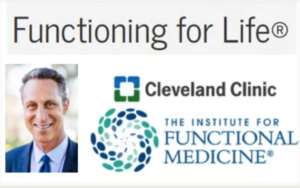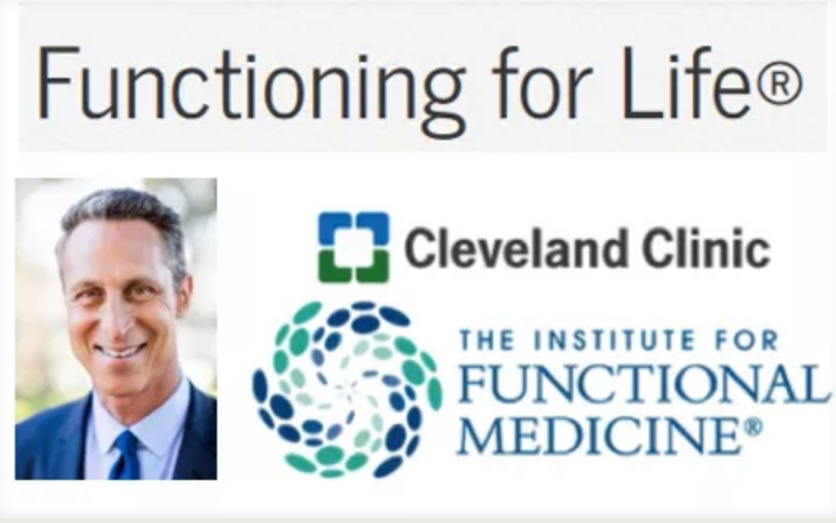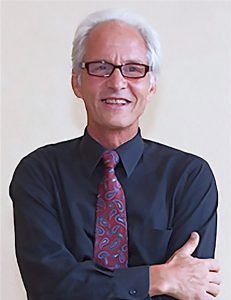 Is it possible that group visits can outperform individual visits in patient reported outcomes? The audience for an energetic panel discussion that touched on group visits at the February 2019 Integrative Healthcare Symposium heard an intriguing – though yet premature – data point. Panelist Mark Hyman MD noted that the Cleveland Clinic Center for Functional Medicine (CCCFM) has developed a functional medicine “shared medical appointments” group model. Hyman then noted that first indications appear to be that self-reports of participants in groups in the Center’s Functioning for Life program. A cursory look at data showed more positive change on key self-report measures via group than via the Center’s already positive individual functional medicine program outcomes. Scientifically verified outcomes have not been reported. Will the performance of group-delivered services hold up under statistical analysis?
Is it possible that group visits can outperform individual visits in patient reported outcomes? The audience for an energetic panel discussion that touched on group visits at the February 2019 Integrative Healthcare Symposium heard an intriguing – though yet premature – data point. Panelist Mark Hyman MD noted that the Cleveland Clinic Center for Functional Medicine (CCCFM) has developed a functional medicine “shared medical appointments” group model. Hyman then noted that first indications appear to be that self-reports of participants in groups in the Center’s Functioning for Life program. A cursory look at data showed more positive change on key self-report measures via group than via the Center’s already positive individual functional medicine program outcomes. Scientifically verified outcomes have not been reported. Will the performance of group-delivered services hold up under statistical analysis?
The CCCFM is perhaps the most closely watched of any institutional uptake of an integrative or functional model. Their original functional medicine treatment model has a core team of a functional medicine doctor, nutritionist, health coach, and a more recent addition of a counseling professional. Their goal is to move Triple Aim outcomes. Early reports on Center’s individually-focused functional medicine strategy through this team have found better outcomes and lower costs compared to patients seeing regular family medicine practitioners.
The shared medical appointments program was developed to improve patient access to the functional medicine  option. The CCCFM had a wait-list. Might these prospective patients benefit from a group-based functional medicine pathway? Functioning for Life is – as its website advertises – “a robust 10-week program of shared medical appointments designed for new patients to the Center for Functional Medicine. Disease-specific programs have been developed and patients can select the series that is right for them.”
option. The CCCFM had a wait-list. Might these prospective patients benefit from a group-based functional medicine pathway? Functioning for Life is – as its website advertises – “a robust 10-week program of shared medical appointments designed for new patients to the Center for Functional Medicine. Disease-specific programs have been developed and patients can select the series that is right for them.”
 Given the promise of the IHS panel Real World: Integrative, Functional and Naturopathic Clinical Pilots in the Era of Value-Based Care – for which I served as moderator – Hyman and his fellow panelists David Fogel MD and Lorilee Schoenbeck ND had each been charged to share outcomes from their initiatives. Outcomes are everything in the value-based era of the Triple Aim.
Given the promise of the IHS panel Real World: Integrative, Functional and Naturopathic Clinical Pilots in the Era of Value-Based Care – for which I served as moderator – Hyman and his fellow panelists David Fogel MD and Lorilee Schoenbeck ND had each been charged to share outcomes from their initiatives. Outcomes are everything in the value-based era of the Triple Aim.
Hyman explained that the Cleveland Clinic researchers have chosen to use the publicly available, NIH-developed PROMIS tool (Patient Reported Outcomes Measurement Information System) to gather outcomes. Positively shifting patient experience is one of the 3 aims in the Triple Aim. Hyman explained that PROMIS indicators are more challenging to improve than are medical symptoms: “We can see medical symptom scores go down but not see PROMIS score go up much.” This was Hyman’s preface to reporting that still, with their core, individually-delivered functional medicine program, the Center was finding a robust improvement on key PROMIS indicators over regular care.
It was a later discussion among the panelist of group visits that produced the fascinating data point. Fogel, from Maryland-based CHI Healthcare, expressed strong philosophic support for groups then revealed that his team found significant administrative challenges in organizing groups. Schoenbeck had interest but less focus on group-delivered services, except for some classes for patients in her Vermont patient-centered medical home, Mountain View Natural Medicine.
During the dialogue, Hyman offered up that a cursory look at early PROMIS data from participants in Functioning for Life group visits had boosted PROMIS self reports on average a third better than the already positive individual visit program. Though the data were preliminary, Hyman felt comfortable stating that “we have under-appreciated the value of group as a therapeutic tool.”
The Cleveland Clinic team is currently working on a formal scientific report to demonstrate their outcomes. It is anticipated to provide detail and further discussion on patient-reported outcomes in the individual and shared medical settings. The team advocates for the effectiveness of group visits to create access, improve the patient experience and enhance patient outcomes.
If these outcomes hold – and even if the group PROMIS outcomes are found to run par with the individually-delivered program – they should engender a good deal of additional research and introspection in the functional, integrative, naturopathic and conventional medicine communities. Might there be a feast of humble pie in finding that the locus of healing is not only in the human being as patient (rather than the doctor/clinician) but also best realized, for some conditions at least, in the community/group context? Talk about disruptive innovation!
Health professional educators, listen up. In a world beset by breakdowns of human connections, could it be that the power of relationships, of learning from and with others – and of knowing one is not alone with one’s troubles – is even more extraordinary than we have thought?






